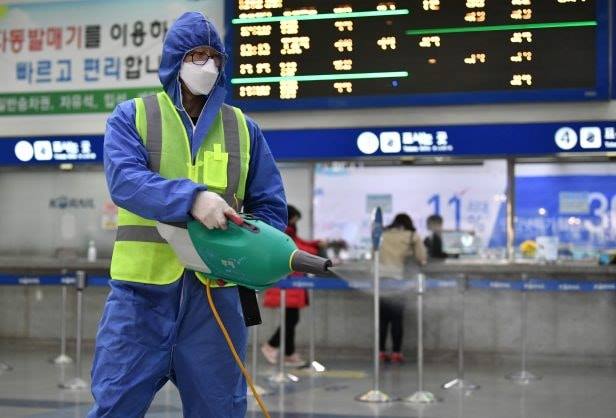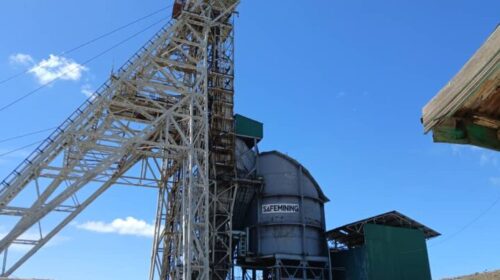How can Zambia Prevent an Economic Disaster Post-COVID-19?
Renowned economist Professor Oliver Saasa shares his views on possible responses that Government could implement to mitigate the damage.
Countries around the world are swiftly making temporary changes to their fiscal regimes to enable companies to focus on ‘business critical work streams’ and cash flows during this difficult time. The OECD has also put together suggested measures to support business continuity, including extension of tax payment deadlines, deferral of payments, and quicker access to tax refunds.
What measures could Zambia adopt to support its business community and, in turn, its economy?
Firstly, there is a level of political leadership that needs to come from the top, along with consistency in Government’s approach, through its different ministries.
Right now, the focus is on the Minister of Health as the main champion and the face of Government. Yes, the medical dimension is very important. Granted, the Minister must take leadership, especially in terms of treatment. But the economy might well be one of the main victims in the short term. At the moment, we have not seen partnerships between Government and corporates, where Government is recognising [and asking]: ‘What is it that we should do to make sure we survive so that, after this challenge, we’re still able to make ends meet and ensure the economy is vibrant?’ Like the sort of measures that the OECD have addressed in their guidelines.
So how should Government respond?
The coronavirus requires completely different tools. This is where we need alliance-building. You need to bring people together, with the requisite skills – put politics aside. This also means bringing in external help, like what we hear about Cuban doctors going to Italy. Let us knock on the doors of the donors if they can help.
This week, the World Bank released a statement referring to countries that are “already in a difficult debt situation, leaving no space for an appropriate health and economic response”, saying: “We are ready to frontload IDA19 [the International Development Association 2019] with up to $35 billion and identify additional resources.”
Zambia surely needs to access some major funding if it’s not going to watch its mining sector shut down. Might Zambia seek assistance in the form of a support package from the World Bank and/or the IMF?
The mining sector accounts for close to 80% of Foreign Exchange earnings for Zambia. Those earnings have a direct effect on the economy, especially with respect to inflation, interest rates, and the exchange rate. The mining sector is also the largest taxpayer. If FQM shuts, for example, you are sure to cut more than half of your Foreign Exchange receipt sources — both tax receipts and Foreign Exchange receipts. They are the major supplier to the Treasury. So, the mines are very important. They must survive. We have to find ways of inoculating them against the post-viral effects.
The other thing one has to recognise is that the first victim to suffer from fiscal stress within the mining sector is labour. Government has to play some role in protecting that labour. Because, once the mining sector becomes financially stressed, the first cost structure for any company — not only mines — that will be cut down on, is labour. This would have a ripple effect on the poverty levels in the country, and on livelihoods generally.
“If FQM closes down, for example, you are sure to cut more than half of your Foreign Exchange receipt sources. So, the mines are very important. They must survive.”
I would go along with the current thinking, especially the OECD recommendations. You must design certain incentives during this period that will allow them to stay afloat.
The mines are already stressed because Government is not able to pay VAT refunds. These now amount to well over $1 billion across the industry. Government must — through recourse to some of these funds coming from the World Bank, and possibly the IMF — settle all VAT refunds to companies that are owed money (especially operators in the economy’s productive sector). Government should recognise first and foremost that the country’s survival post-crisis depends on the private sector’s resilience. Also, Government should see some moral responsibility to actually hold their fire, and be able to help those that really also benefit them.
In terms of survival of the private sector, tax breaks are important — and they are temporary. They are not cancellations; there will still be tax obligations after the crisis. Penalties should not be applied during this period. Let’s give a certain level of relief to the productive sector during these hard times. Let’s see where we can formulate a response — including what the World Bank is offering — and let’s look at how we can survive and sustain the economy, post-coronavirus. It has to be through private sector growth, its resilience, and its ability to survive and thrive.
It sounds like you see a clear need for Government to work with multilaterals such as the World Bank to get assistance, where available.
I do. If you look at what happened with the financial crisis in 2008, for example, stimulus measures came from the US Federal Government to save big banks. Those companies needed that, and they paid it back. A package that comes from the World Bank would be for private sector sustenance, to cushion the private sector from the possibilities of closing down. But Government cannot know how to support the mines if they are not engaged in dialogue with them — which, right now, they are not.
More than ever before, the Minister of Finance must meet business representatives, because it’s through meeting them that Government will get an opportunity to learn where the real challenges are.
The World Bank and the IMF recently released a joint statement calling on all official bilateral creditors to “suspend debt payments from IDA countries that request forbearance”, in order to free up money desperately needed by countries like Zambia for stepping up medical intervention and responses to COVID-19’s economic impact.
“Let’s see where we can formulate a response — including what the World Bank is offering — and let’s look at how we can survive and sustain the economy, post-coronavirus. ”
You mentioned that an enormous proportion of Zambia’s debt is held by China. Can you see China deferring some of Zambia’s repayments and, if so, how much of a difference would this make?
One hopes that China will make a positive acceptance of this appeal. We have several loan agreements for different (mainly road) projects. The more of that debt which gains temporary relief, the better.
At the moment, if you look at our debt portfolio, debt servicing and Government salaries (combined) account for more than 90% of Government revenue on a monthly basis. Debt servicing alone accounts for in the region of 40%.
What about Chinese construction companies in the private sector that have given loans to Zambia?
The Chinese debt portfolio is interesting. A significant portion of Zambia’s Chinese debt belongs to corporates that are majority-owned by the Chinese government. These would qualify very easily in the context of what the IMF and the World Bank are requesting in their statement. So, there may be a certain level of anticipation on the part of the Zambian government.
Likewise, as the World Bank suggests that the G20’s deferral of certain payments would be a sound method for freeing up funds during the most financially stressful times ahead, would it be feasible for Zambia’s government to defer outstanding tax payments owed by mines? That would allow them to gain access to much-needed working capital.
Yes, I think it’s a good idea — not only for the mining sector, but for the entire productive sector. This is not the time when the Zambian Revenue Authority should go to companies that are in ICU, economically speaking. As much as Government is looking for money, during the crisis we face now, Government has greater resilience. Because of that, one hopes that Government focuses more on what it can do to provide relief to companies in the productive sector — including those that owe Government money.
There must be some suspension of tax obligations for stressed companies. Because of the nature of the calamity we are facing, one expects a level of restraint.
What would happen to the Zambian economy if some or all of the mining sector doesn’t survive this crisis?
The first thing is that a major shortage of Foreign Exchange would come about. Labour would be significantly affected, because the closure of a big mine — take, for example, Kansanshi — would mean thousands and thousands of employees losing their jobs. But sometimes we really miss the point when it comes to who loses jobs if a mine closes.
With the mining sector, you have to look at what’s often referred to as the multiplier effect. There are so many contractors within the mining sector that are not directly employed by the mines, but are dependent on their survival. If the mines in Copperbelt Province close today — or a significant share of them — you will see the whole of the Copperbelt’s economy go down. Those who are linked in that supply chain will also be affected: suppliers of goods and services — and not only those who are providing labour. So, the entire landscape — or the DNA — of the Copperbelt would change significantly, and definitely not in the interests of the Zambian economy.





